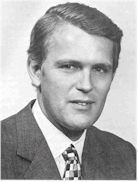Rudolf E. Kalman
- Birthdate
- 1930/05/19
- Death date
- 2016/07/02
- Associated organizations
- MIT, Columbia University, Research Institute for Advanced Study
- Fields of study
- Control systems
- Awards
- IEEE Medal of Honor
Biography
Rudolf Kalman was born in Budapest, Hungary on 19 May 1930. The son of an electrical engineer he decided to follow in his father's footsteps. He immigrated to the United States and obtained a Bachelor's and Master's degree in Electrical Engineering from M.I.T. in 1953, and 1954 respectively. He left M.I.T. and continued his studies at Columbia University where he received his ScD. in 1957 under the direction of Professor J. R. Ragazzini.
His early interest in control systems was evident by his research at M.I.T. and especially at Columbia. His early research was based upon the notion of state variable representations, was mathematically advanced but motivated by practical problems. He also showed, even at these early years, a highly individual approach to research which has continued during the remainder of his brilliant career.
From 1957 to 1958 Kalman was employed as a staff engineer at the IBM Research Laboratory in Poughkeepsie, N. Y. During that period, he made important contributions to the design of linear sampled-data control systems using quadratic performance criteria, as well as in the use of Lyapunov theory for the analysis and design of control systems. He foresaw at that time the importance of the digital computer for large-scale systems.
In 1958, Kalman joined the Research Institute for Advanced Study (RIAS) which was started by the late Solomon Lefschetz. He started as a research mathematician and was promoted later to Associate Director of Research. It was during that period of time (1958-1964) that he made some of his truly pioneering contributions to modern control theory. His lectures and publications during that time period are indicative of his tremendous creativity and his search for a unified theory of control. His research in fundamental systems concepts, such as controllability and observability, helped put on a solid theoretical basis some of the most important engineering systems structural aspects. He unified, in both the discrete-time and continuous-time case, the theory and design of linear systems with respect to quadratic criteria. He was instrumental in introducing the work of Caratheodory in optimal control theory, and clarifying the interrelations between Pontryagin's maximum principle and the Hamilton-Jacobi-Bellman equation, as well as variational calculus in general. His research not only stressed mathematical generality, but in addition it was guided by the use of the digital computer as an integral part of the design process and of the control system implementations.
It was also during his stay at RIAS that Kalman developed what is perhaps his most well known contribution, the so-called "Kalman filter". He obtained results on the discrete-time (sampled data) version of this problem in late 1958, and early 1959. He blended earlier fundamental work in filtering by Wiener, Kolmogorov, Bode, Shannon, Pugachev and others with the modern state-space approach. His solution to the discrete-time problem naturally led him to the continuous-time version of the problem and in 1960-1961 he developed, in collaboration with R. S. Bucy, the continuous-time version of the "Kalman filter".
The Kalman filter, and its later extensions to nonlinear problems, represents perhaps the most widely applied by-product of modern control theory. It has been used in space vehicle navigation and control (e.g. the Apollo vehicle), radar tracking algorithms for ABM applications, process control, and socioeconomic systems. Its applications popularity is due to the fact that the digital computer is effectively used in both the design phase as well as the implementation phase. From a theoretical point of view it brought under a common roof related concepts of filtering and control, and the duality between these two problems.
In 1964, Kalman went to Stanford University where he was associated with the departments of Electrical Engineering, Mechanics, and Operations Research. During that period, his research efforts shifted toward the fundamental issues associated with realization theory, and algebraic system theory. Once more he opened up new research avenues in a new and basic area, and his contributions helped shape a new field of research in modern system theory.
In 1971, Kalman was appointed graduate research professor at the University of Florida in Gainesville. He became director of the Center for Mathematical System Theory and his education and research activities involved the departments of electrical engineering, industrial engineering, and mathematics. He also acted as a scientific consultant to research centers in the Ecole des Mines de Paris, France.
Kalman not only shaped the field of modern control theory, but he has been instrumental in promoting its wide usage. His magnetic personality and his numerous lectures in universities, conferences, and industry have attracted countless researchers who were greatly influenced by his ideas. He has acted as a catalytic force in international exchange of ideas.
Kalman published more than fifty technical articles, co-authored the book "Topic in Mathematical System Theory (McGraw-Hill, 1969), and delivered numerous lectures. He was a member of many professional societies and he served on the editorial board of numerous journals. In 1962, he was named as the Outstanding Young Scientist of the Year by the Maryland Academy of Sciences. He became a Fellow of the IEEE in 1964, and in 1974, he received the IEEE Medal of Honor "For pioneering modern methods in system theory, including concepts of controllability, observability, filtering, and algebraic structures."
